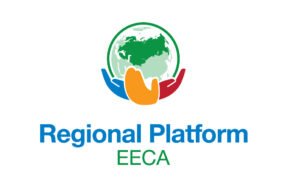HIV criminalisation: global situation today
- 27.09.2016 23:32
- Post Views: 1,326
“HIV criminalization is a growing, global phenomenon that is seldom given the attention it deserves considering its impact on both public health and human rights, undermining the HIV response.”
The report covers the period from April 2013 to September 2015, following the original “Advancing HIV Justice”, which covered September 2011 to March 2013.
The updated report describes HIV criminalization as “the unjust application of the criminal law to people living with HIV based solely on their HIV status—either via HIV-specific criminal statutes, or by applying general criminal laws that allow for prosecution of unintentional HIV transmission, potential or perceived exposure to HIV where HIV was not transmitted, and/or nondisclosure of known HIV-positive status.”
Findings of the report include:
- A total of 72 countries (101 if States are counted individually) have adopted laws that specifically allow for HIV criminalization, either because the law is HIV-specific or because it names HIV as one (or more) of the diseases covered by the law.
- Prosecutions for HIV nondisclosure, potential or perceived exposure and/or unintentional transmission have now been reported in 61 countries (105 when U.S. states and Australian states/territories are counted separately). Of the 61 countries, 26 applied HIV criminalization laws, 32 applied general criminal or public health laws, and three (Australia, Denmark and United States) applied both HIV criminalization and general laws.
- The highest numbers of prosecutions between April 2013 to October 2015 were reported in:
Russia (at least 115)
United States (at least 104)
Belarus (at least 20)
Canada (at least 17)
France (at least 7)
United Kingdom (at least 6)
Italy (at least 6)
Australia (at least 5)
Germany (at least 5).
However, according to the report, “Important and promising developments in case law, law reform and policy have taken place in many jurisdictions, most of which came about as a direct result of advocacy from individuals and organisations working to end the inappropriate use of the criminal law to regulate and punish people living with HIV.”
The report has 76 pages and consists of 5 main blocks, including the global overview, examples of good practice of advocacy and key developments by country, including Czech Republic (page 56) from Eastern Europe.
Related News
Services for migrants and refugees from Ukraine – HIV/TB care with a focus on key populations
Due to the increasing flows of refugees from Ukraine because of Russia’s invasion of Ukraine, the EECA Regional Platform created a spreadsheet to fill contacts details of face-to-face and online services for refugees and migrants (with a focus on HIV/TB care and key population groups).
Regional Platform – EECA
This web-resource is a part of new regional communication and coordination project “Regional Civil Society and Community Support, Coordination and Communication Platform - EECA”, implemented by Eurasian Harm Reduction Association (EHRA).
Tags
See also
-
EECA’s Regional Platform monthly Newsletter #20, January 2026 27.01.2026 12:58
-
Global Fund Eligibility List 2026 27.01.2026 11:19







